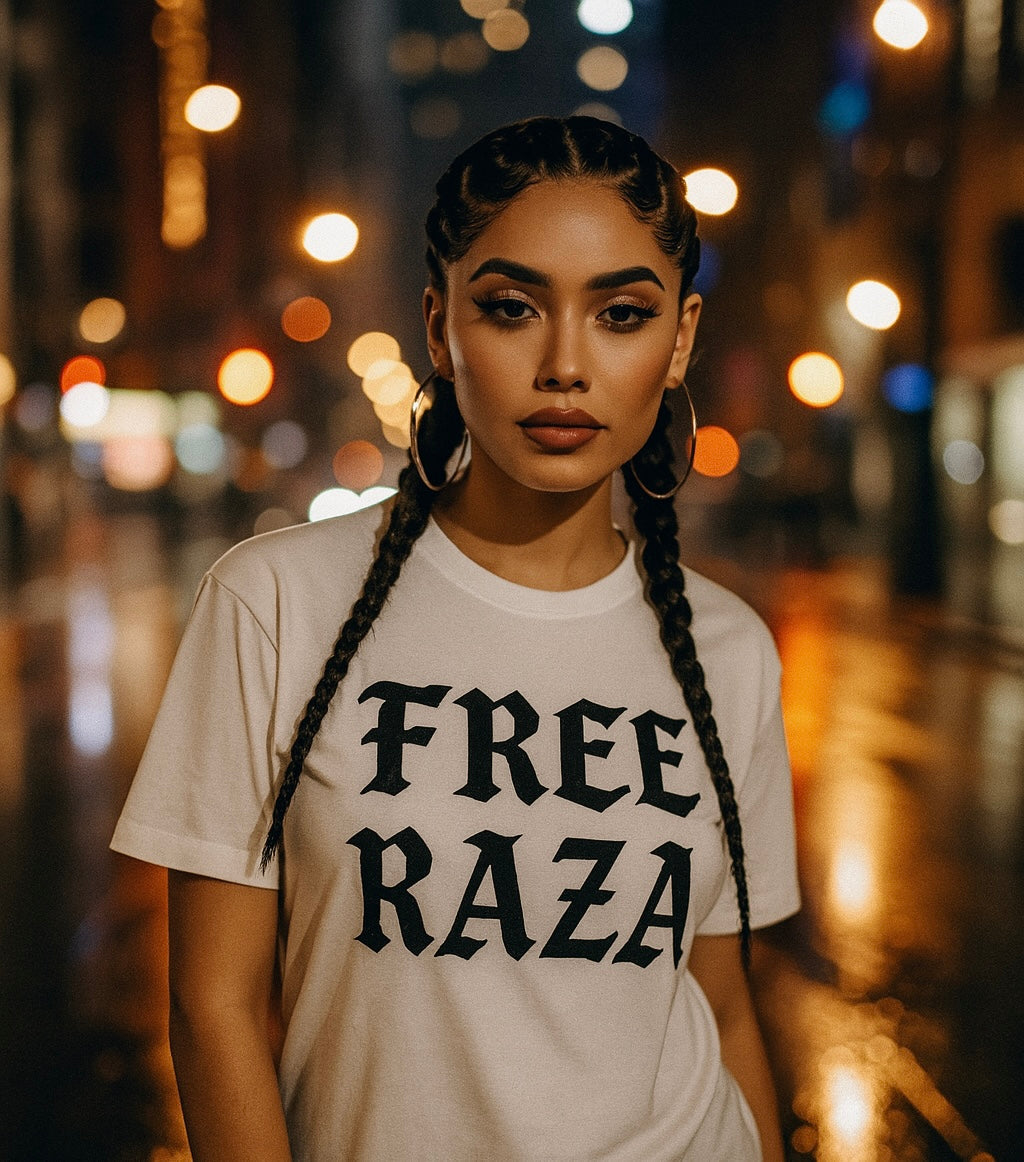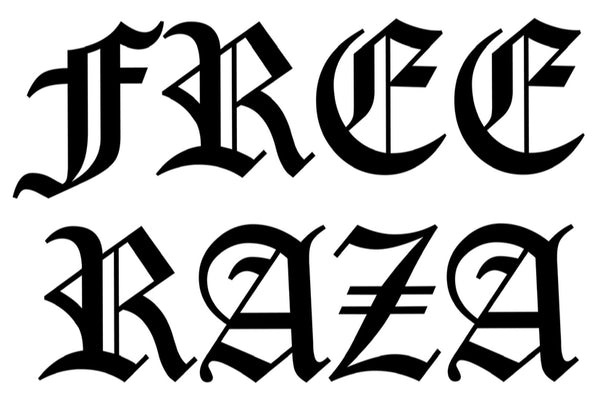
Free Raza: Unearthing the Stolen Land
What does it mean to live on stolen land? For one family in New Mexico, it’s not just history — it’s personal.
Living the Legacy of Colonization
Before we break down what was stolen, let’s talk about someone living that reality today.
In Albuquerque, New Mexico, a man is raising three kids with purpose. He didn’t grow up with wealth — he grew up with silence. His mother, a single parent, didn’t speak Spanish — not because she didn’t care, but because the system taught her not to. Colonization doesn’t just take land. It erases identity, language, memory.
Now? He’s flipping that script. His kids are learning how to build businesses using AI, creativity, and zero budget. And out of that hustle came Free Raza — not just a clothing brand, but a movement.
You’ve seen the gear: bold black tees, old English fonts, unapologetic Chicano culture. It’s more than style. It’s history stitched into every thread.
And the story runs deeper: generations ago, his family helped build a church in Guadalupe, New Mexico — a town that used to be part of Mexico. That church still stands today, but the surrounding land? Sold off to oil companies. Now his family is in a legal fight to reclaim it.
🌱 Land as Life — Before the Colonizers
Let’s rewind — before borders, before conquest. This land wasn’t “wild.” It was wise.
Indigenous nations like the Pueblo and Anasazi built civilizations with complex architecture, astronomy, and farming systems. The land wasn’t owned — it was respected. Communities like the Aztec calpulli didn’t believe in private property. Land was sacred, shared, and sustained.
But when the Spanish arrived, they brought a different mindset — one rooted in extraction, domination, and ownership.
⚖️ The Legal Lie: How the Land Was Taken
The theft didn’t start with guns — it started with paper.
In the 1400s, the Pope issued the Doctrine of Discovery, declaring that if land wasn’t inhabited by Christians, it was legally “empty” — terra nullius. That lie gave Spain the so-called right to colonize most of the Americas.
Once they landed, they used encomiendas, haciendas, and reducciones — systems that controlled land, labor, and Indigenous lives. These weren’t just policies. They were blueprints for erasure.
🖤 Why Free Raza Matters
What does this have to do with a t-shirt?
Everything.
Wearing Free Raza is a refusal to forget. It’s a way of saying:
I know what was stolen. I know what was silenced.
I’m not here for your erasure. I’m here to reclaim what’s mine.
Every shirt sold funds a message. Every hoodie tells a story. This isn’t merch — this is memory in motion.
🌀 The Land Remembers
Textbooks forget. The land remembers.
From pipeline protests to Pueblo prayers, from land grant lawsuits to whispered family stories — it’s all part of a truth too big to stay buried.
This was just the beginning.
Next episode: The Pueblo Revolt — when Native resistance kicked Spain out of New Mexico for 12 straight years.
Follow the movement, share your story, and rep the truth at
